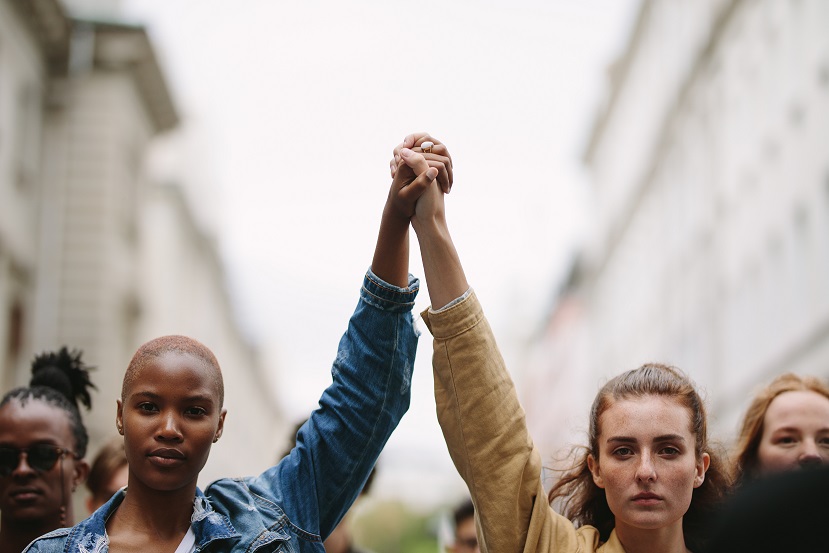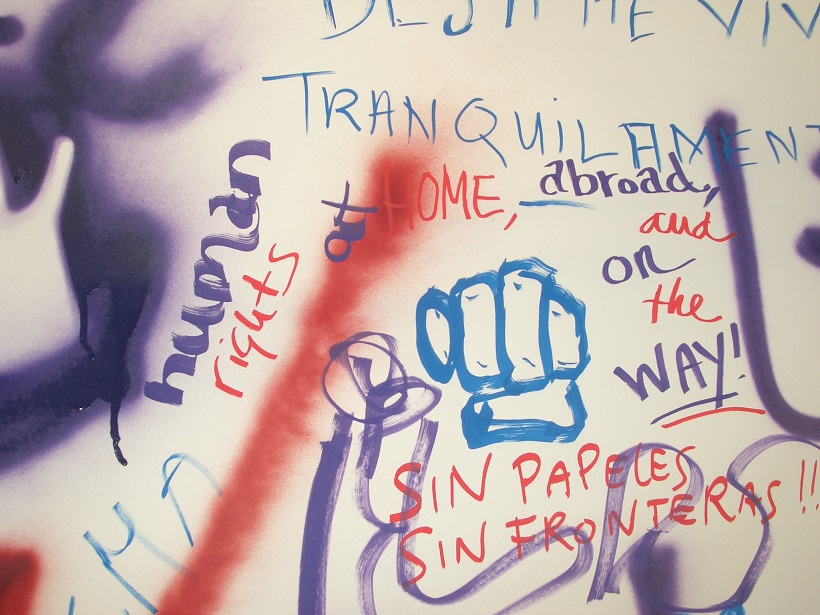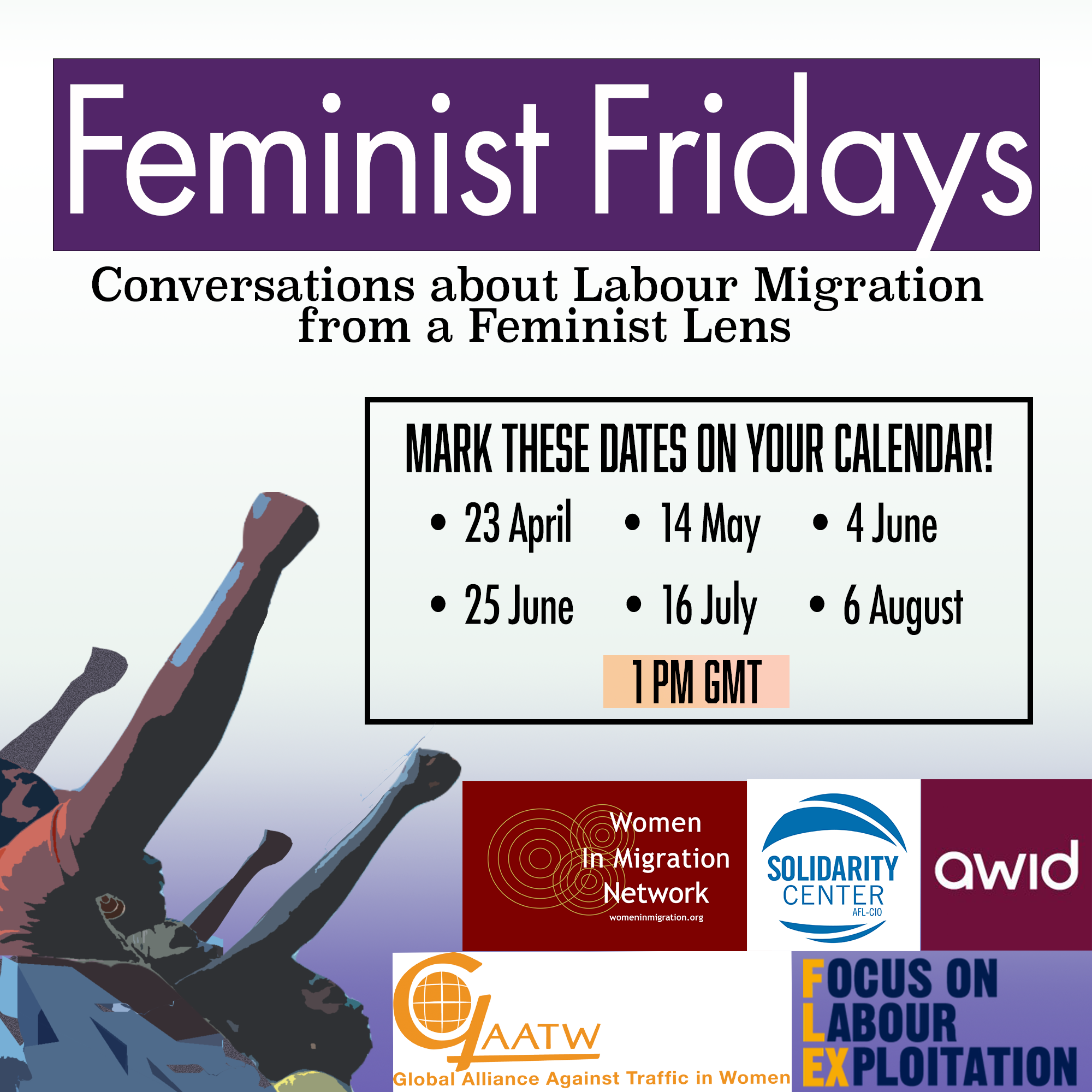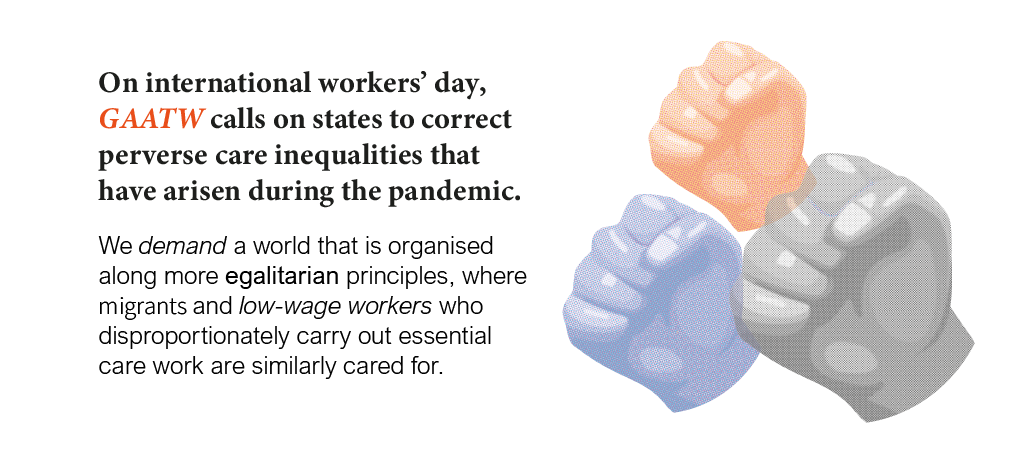Towards a fair and inclusive society for all
- Details
Statement by Global Alliance Against Traffic in Women on International Women’s Day 2022
GAATW stands in solidarity with all women workers – paid and unpaid, local and migrant. We salute their courage to organise, form collectives, and support each other in this difficult time. We are inspired by their creative and innovative organising strategies.
We also applaud the steps taken by some states to provide migrants, including undocumented migrants, refugees, and asylum seekers, with various forms of emergency support. Initiatives to extend visa and work permits and to create firewalls between access to services and immigration authorities are stepping stones to creating inclusive societies. More recently, we have been touched by the generosity of neighbouring countries towards people fleeing the war in Ukraine.
In Agenda 2030, states made commitments to promote the socioeconomic and political inclusion of all, ensure decent work, and end violence against women, among others. As signatories to the Global Compact on Migration, states have also agreed to ensure empowerment and inclusion of migrants and work towards social cohesion. Yet, the exclusion and othering that we have seen in the last two years and, most recently, towards non-Europeans fleeing Ukraine, tell us that reality is very different. Sadly, our states and we as people have many excuses to justify exclusion and rejection of our fellow human beings. Gender, race, class, caste, religion, and ethnicity are invoked in different contexts, both within countries and across borders, to justify exclusion.
Stop all forms of gender-based violence: A manifesto for an inclusive and comprehensive EU gender-based violence policy for all
- Details

In the lead up to International Women’s Day, 8 March, and the expected publication of a draft EU law to address violence against women and domestic violence, major international and European networks and organisations have adopted a manifesto for a truly inclusive EU law and policy. All civil society organisations and Members of European Parliament are invited to join us – sign up to the manifesto here.
Strengthening Intersectional Analyses and Responses to Labour Migration
- Details
 In April, we launched a six-part series titled “Feminist Fridays: Conversations about Labour Migration from a Feminist Lens”, in collaboration with Association for Women’s Rights in Development (AWID), Focus on Labour Exploitation (FLEX), Solidarity Center, and Women in Migration Network (WIMN).
In April, we launched a six-part series titled “Feminist Fridays: Conversations about Labour Migration from a Feminist Lens”, in collaboration with Association for Women’s Rights in Development (AWID), Focus on Labour Exploitation (FLEX), Solidarity Center, and Women in Migration Network (WIMN).
In these sessions, we reflected on how to undertake the complex work of standing in solidarity with migrant workers and celebrating their agency while also highlighting the abuse and exploitation they face. Feminist academics, civil society leaders, and migrant workers themselves discussed how to better understand and represent the lived experiences of migrant workers, especially women, who are overrepresented in low-paid and precarious jobs in the informal sector, and who have absorbed even greater caring responsibilities during the pandemic.
Interview: Tenth Anniversary of Anti-Trafficking Review
- Details

GAATW launched Anti-Trafficking Review - the first open access, peer reviewed journal focusing on human trafficking - in 2011. On the occasion of this tenth anniversary, the journal Editor, Borislav Gerasimov, spoke to three of the women who conceptualised and launched the journal and have continued to support it in various capacities: Bandana Pattanaik, International Coordinator of GAATW, Caroline Robinson, who was working at the time as International Advocacy Officer at GAATW, and Rebecca Napier-Moore who was working at the time as Research Officer. Caroline and Rebecca were part of the editorial team for the first issue, and Rebecca continued as journal Editor through 2016.
Voices and Participation of Victims, Survivors and Workers: Reflections on World Day Against Trafficking in Persons
- Details
Bandana Pattanaik
 Listening to the lived experiences of trafficked persons and incorporating their feedback in anti-trafficking initiatives have always been a practice among many GAATW members. The International Secretariat has also taken a number of steps over the years to ensure that state and non-state actors consult trafficked persons while planning their anti-trafficking work.
Listening to the lived experiences of trafficked persons and incorporating their feedback in anti-trafficking initiatives have always been a practice among many GAATW members. The International Secretariat has also taken a number of steps over the years to ensure that state and non-state actors consult trafficked persons while planning their anti-trafficking work.
However, this is work in progress. While organising survivor-testimony sessions and seeking their input on assistance measures are not difficult, ensuring their participation in all aspects of anti-trafficking work is fraught with many barriers. On this World Day Against Trafficking in Persons, I would like to reflect on our work to centre the voices and concerns of survivors and suggest ways to make it better.
I remember a consultation organised by GAATW, AWHRC (Asian Women’s Human Rights Council), SANGRAM (a sex workers’ support group based in Kolhapur, India) and VAMP (a sex workers’ collective based in Sangli, India) in March 1999. It had brought together organised and individual trafficked persons, organised sex workers, academics and activists from Bangladesh, China, Cambodia, India, Nepal, Philippines, Thailand and Taiwan.
GAATW Statement at Multi-Stakeholder Hearing on Global Plan of Action
- Details
Oral statement by the Global Alliance Against Traffic in Women (GAATW) for Panel 1 of the UN Multi-stakeholder Hearing on Trafficking in Persons, “The Global Plan of Action and enduring trafficking issues and gaps”, 13 July 2021
Delivered by: María Emilia Cebrián
Madam Vice-President, Distinguished Delegates, Ladies and Gentlemen,
The present statement addresses the following guiding questions, as per suggested in the concept note for the Multi-stakeholder Hearing on Trafficking in Persons:
- How should understanding the root causes of trafficking in persons inform coordinated efforts to respond?
- How can we provide greater international protection and support for survivors of trafficking in persons?
The Global Alliance Against Traffic in Women (GAATW) welcomes the recognition by States Parties of human trafficking as a serious crime and a human rights violation, and for their commitment to addressing trafficking through the Global Plan of Action to Combat Trafficking in Persons. In the past two decades, almost every country in the world has introduced legal mechanisms and practical measures to address human trafficking. Yet, we are very far from ending trafficking and exploitation. Therefore, it is imperative for us all now to reflect on the challenges in this work and broaden the scope of anti-trafficking measures.
Who Cares for Our Workers?
- Details
On this International Workers Day, the Global Alliance Against Traffic in Women (GAATW) would like to take a moment to honour the legions of workers who have helped us tide through a year of unsettling crisis.
During the pandemic, our physical, health, nutritional and even emotional needs are met by a constantly available stream of workers who care for us—including domestic workers, cooks, childcarers, home tutors, to workers who continue to churn out essential household goods—many of whom are low-wage, migrant workers. Many of these workers, in their ceaseless provision of care for us during the pandemic, have no equivalent “caring” services at their disposal.
Feminist Fridays: Conversations about Labour Migration from a Feminist Lens / Viernes feministas: Conversaciones sobre la migración laboral desde una perspectiva feminista
- Details

Abajo en español Bahasa Indonesia
Feminist Fridays: Conversations about Labour Migration from a Feminist Lens is a collaborative initiative of Association for Women’s Rights in Development (AWID), Focus on Labour Exploitation (FLEX), Global Alliance Against Traffic in Women (GAATW), Solidarity Center, and Women in Migration Network (WIMN).
During the course of six sessions, we will think through complex issues and build/share knowledge and learn from each other. We will start with a discussion on ‘what is a feminist lens on labour migration’ and will move on to feminist research, advocacy, organising and media. The final session will be on imagining feminist futures on labour migration. Panellists will come from academia, NGOs including migrant worker led organisations, trade unions and media.

